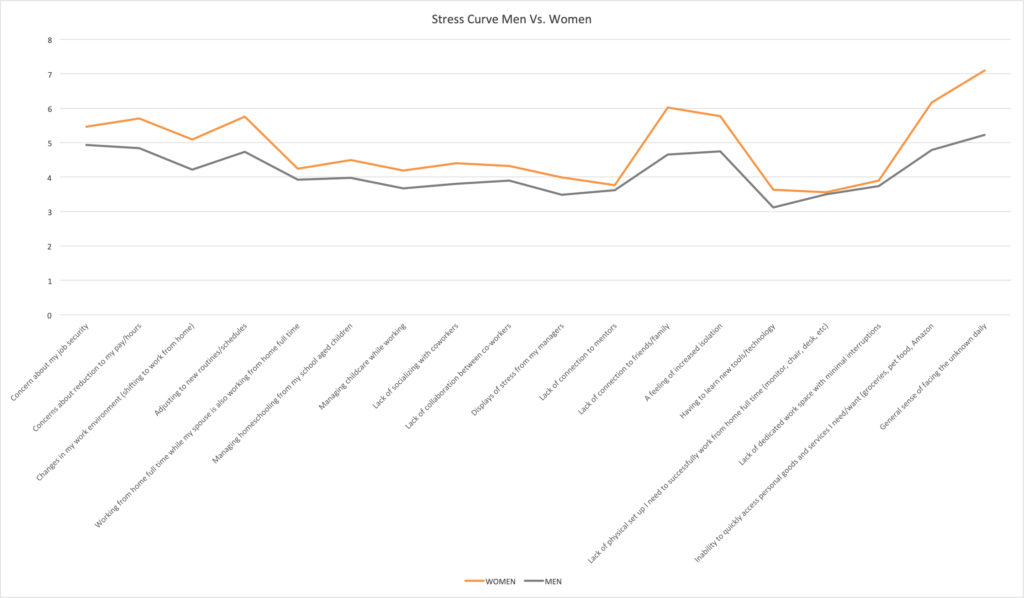
by Molly George
After watching stress levels begin to come down week-over-week, the optimism may have been short-lived, as this week, we saw them ramp back up by 4%. While not a huge gain, we still wanted to better understand the causes of this uptick.
Within the pulse study, we’ve continuously tracked three items heavily align with working parents. Those include stress levels related to:
- working from home, while your spouse also works from home
- managing home schooling
- managing childcare
As families settled into this new, tricky routine, we saw stress levels related to these three items steadily decline week over week, but suddenly this week all three spiked up, with stress levels related to “working from home while my spouse also works from home,” jumping 4% and “managing childcare” and “managing homeschooling,” both jumping 10%.
With many studies citing that working women continue to own most of the chores at home, this led us to dig into whether women or men were experiencing higher stress levels during the crisis. And what we found were some pretty big differences.
In general, this week, women reported being 25% more stressed out than their male counterparts, and 18% more likely to be more stressed out this week than last week.

In fact, women reported higher stress levels than men across every single metric we asked about. Notably, women are experiencing:
13% higher stress levels than men related to “home schooling”
14% higher stress levels related to “managing childcare”
21% higher for “an increased feeling of isolation,”
29% higher for “lack of connection to friends and family”
36% higher for the “general sense of facing the unknown daily.”
Beyond the factors of lack of social connection and bearing more stress related to managing home and childcare, economic concerns also may be coming into play.
This week, women reported 11% higher stress levels than men about their job security and 18% higher about concerns about potential reduction of pay/hours. Additionally, women maintain less optimism about overall economic recovery, with women being 20% more likely than men to say they are “not optimistic at all” about an economic recovery. And women’s optimism about the economy went down more this week than it did for men, with men being 20% more likely than women to say they felt more optimistic about the economy this week than last week.
If you have any insight you’d like to share about your personal experiences during the COVID-19 crisis or additional data you might like to see in a future study, we’d love to hear from you. Drop us a line at hello@meetkickstand.com.



